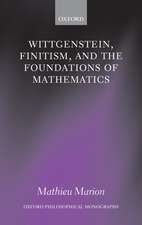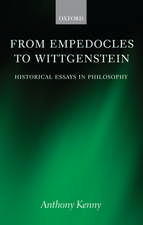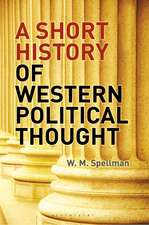Doing Philosophy Comparatively: Foundations, Problems, and Methods of Cross-Cultural Inquiry
Autor Tim Connollyen Limba Engleză Paperback – 25 ian 2023
| Toate formatele și edițiile | Preț | Express |
|---|---|---|
| Paperback (2) | 136.87 lei 3-5 săpt. | +37.51 lei 5-11 zile |
| Bloomsbury Publishing – 25 ian 2023 | 136.87 lei 3-5 săpt. | +37.51 lei 5-11 zile |
| Bloomsbury Publishing – 17 iun 2015 | 186.35 lei 6-8 săpt. | |
| Hardback (2) | 409.10 lei 6-8 săpt. | +89.75 lei 5-11 zile |
| Bloomsbury Publishing – 25 ian 2023 | 409.10 lei 6-8 săpt. | +89.75 lei 5-11 zile |
| Bloomsbury Publishing – 17 iun 2015 | 832.26 lei 6-8 săpt. |
Preț: 136.87 lei
Preț vechi: 155.77 lei
-12% Nou
Puncte Express: 205
Preț estimativ în valută:
26.20€ • 28.47$ • 22.02£
26.20€ • 28.47$ • 22.02£
Carte disponibilă
Livrare economică 31 martie-14 aprilie
Livrare express 15-21 martie pentru 47.50 lei
Preluare comenzi: 021 569.72.76
Specificații
ISBN-13: 9781350177543
ISBN-10: 1350177547
Pagini: 312
Dimensiuni: 156 x 234 x 25 mm
Greutate: 0.48 kg
Ediția:2
Editura: Bloomsbury Publishing
Colecția Bloomsbury Academic
Locul publicării:London, United Kingdom
ISBN-10: 1350177547
Pagini: 312
Dimensiuni: 156 x 234 x 25 mm
Greutate: 0.48 kg
Ediția:2
Editura: Bloomsbury Publishing
Colecția Bloomsbury Academic
Locul publicării:London, United Kingdom
Caracteristici
Draws on a wide variety of texts and examples from Ancient Greek, European, Chinese, Indian, African, and Islamic philosophical traditions
Notă biografică
Tim Connolly is Professor of the Department of Modern Languages, Philosophy, and Religion at East Stroudsburg University, USA.
Cuprins
List of TablesAcknowledgementsIntroductionHow this Book Works Part I. The Nature of Comparative Philosophy 1. Is There Such a Thing as Comparative Philosophy? The Legitimacy of "non-Western philosophy" What is "philosophy" in comparative philosophy? The "Comparative" Aspect Conclusion 2. The Goals of ComparisonA First Look at the Two Dimensions The Interpretive Dimension: Comparing to UnderstandThe Constructive Dimension: Comparing to Make Philosophical Progress Conclusion 3. The Role of Tradition and Culture Tradition and Philosophy Culture Which Traditions?Conclusion Part II. The Problems of Comparative Philosophy 4. Linguistic Incommensurability Background on the TermThe Linguistic Relativity Thesis Understanding Other Languages Issues for Comparative PhilosophersConclusion 5. Foundational and Evaluative Incommensurability Foundational IncommensurabilityEvaluative IncommensurabilityConclusion 6. One-Sidedness The Meaning of One-sidedness Avoiding One-sidedness Conclusion 7. Generalization Cultural Essentialism The Generalizations Debate Generalizations and EvidenceConclusion Part III. Approaches to Comparison 8. Universalism Varieties of Universalism Challenges and Criticisms Conclusion 9. PluralismThe Case for Pluralism Criticism and EvaluationConclusion 10. Consensus Consensus in Theory and Practice Evaluating the Consensus ApproachConclusion 11. Global Philosophy The Challenge of Global Philosophy External Criticism Global Problem-SolvingConclusion Part IV: The Practice of Comparative Philosophy 12. Study and Teaching Resources for Doing Philosophy ComparativelyExercisesSuggested ReadingsFurther Questions for Discussion Conclusion Notes Bibliography Index
Recenzii
An excellent starting point for anyone interested in the field of comparative philosophy [...] Tim Connolly has established a benchmark for the study of comparative philosophy [...] by offering a clear summary of the key issues and by providing a platform for nurturing future philosophers to think beyond their localized perspectives.
The author faces the topics [in this book] in a concise but thought-provoking manner ... [and] outlines the discipline in an exciting way ... [A] vibrant introduction to comparative philosophy.
In this well-written, jargon-free textbook, Connolly sensitively addresses the worthiness and significance of comparative philosophy while also acknowledging the difficulties that arise from a comparative approach [.] Each of the 11 chapters concludes with rich suggested readings and discussion questions that will serve well in classroom settings. This volume marks an extraordinary step forward in comparative philosophy, and this reviewer knows of no better guidebook. An invaluable resource for those pursuing a career in comparative philosophy. Summing Up: Highly recommended.
This book's well-argued defense of comparative philosophy and illuminating discussions of its challenges and problems, as well as different comparative approaches, will provide invaluable resources for teaching and learning how to philosophize across cultural boundaries. Students will find the chapter-by-chapter exercises added to this new edition particularly helpful.
This book's lucid organization, engaging and accessible prose, and balanced presentation of competing views makes it the ideal introduction to comparative philosophy.
An excellent introduction to comparative philosophy, but it also serves as a wonderful pedagogical tool for a research and methods course. The text is clear, well-organized, and most importantly philosophically interesting.
The author faces the topics [in this book] in a concise but thought-provoking manner ... [and] outlines the discipline in an exciting way ... [A] vibrant introduction to comparative philosophy.
In this well-written, jargon-free textbook, Connolly sensitively addresses the worthiness and significance of comparative philosophy while also acknowledging the difficulties that arise from a comparative approach [.] Each of the 11 chapters concludes with rich suggested readings and discussion questions that will serve well in classroom settings. This volume marks an extraordinary step forward in comparative philosophy, and this reviewer knows of no better guidebook. An invaluable resource for those pursuing a career in comparative philosophy. Summing Up: Highly recommended.
This book's well-argued defense of comparative philosophy and illuminating discussions of its challenges and problems, as well as different comparative approaches, will provide invaluable resources for teaching and learning how to philosophize across cultural boundaries. Students will find the chapter-by-chapter exercises added to this new edition particularly helpful.
This book's lucid organization, engaging and accessible prose, and balanced presentation of competing views makes it the ideal introduction to comparative philosophy.
An excellent introduction to comparative philosophy, but it also serves as a wonderful pedagogical tool for a research and methods course. The text is clear, well-organized, and most importantly philosophically interesting.

















